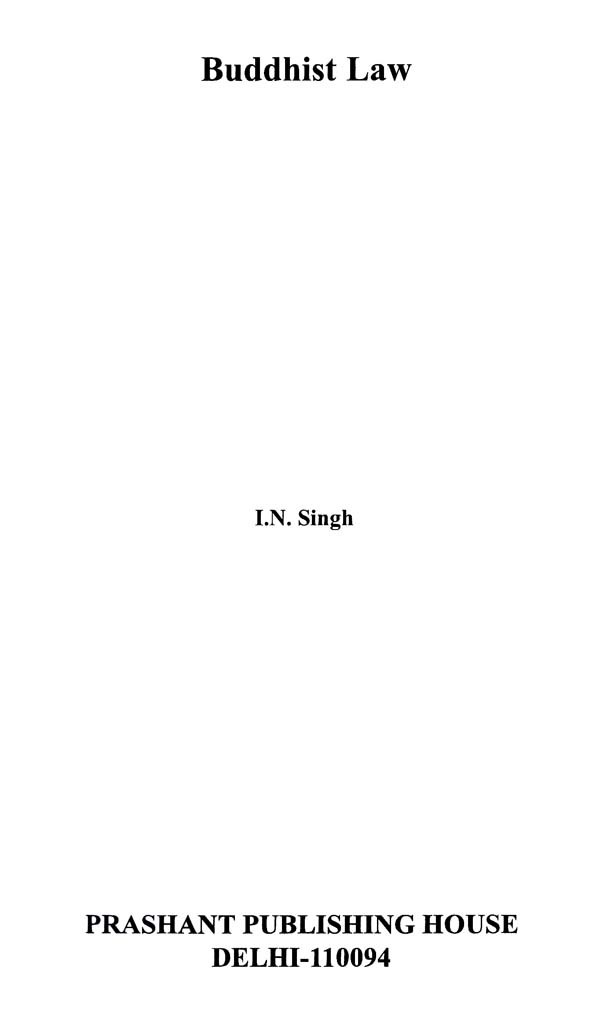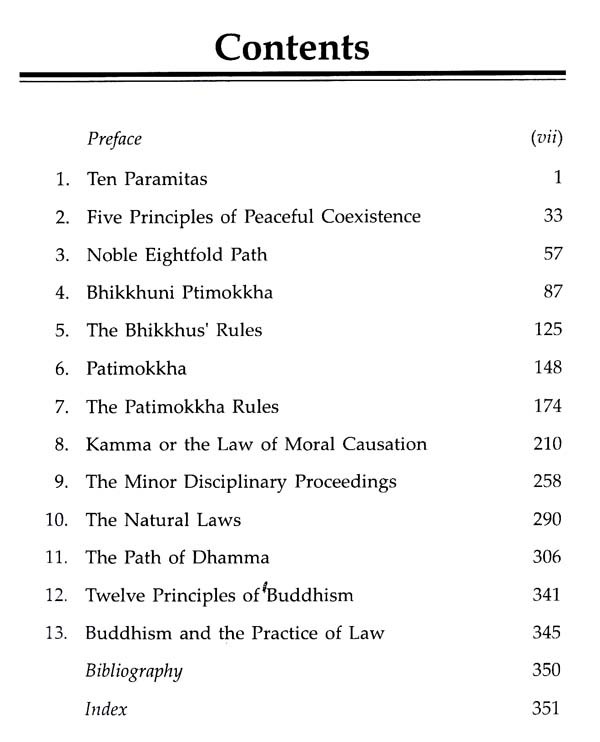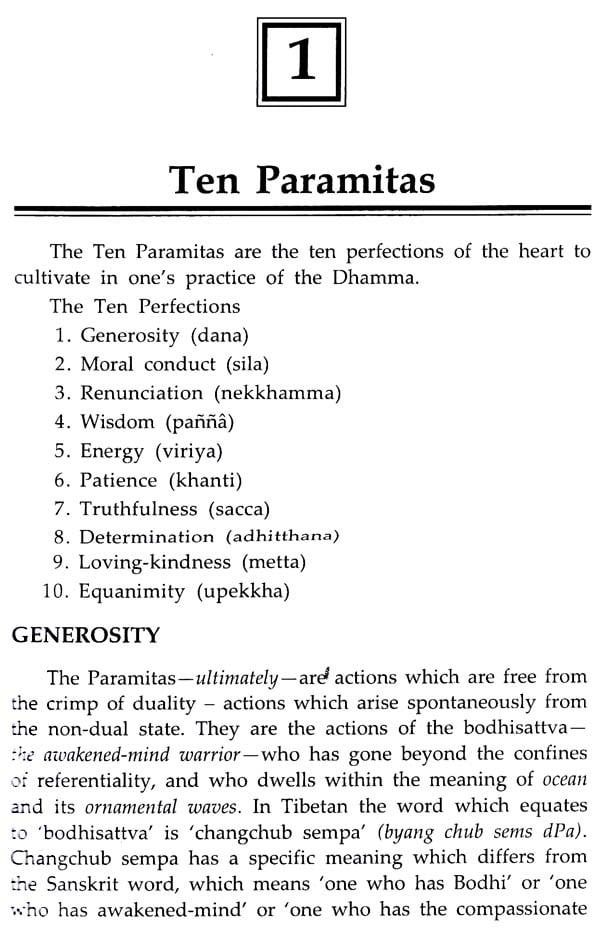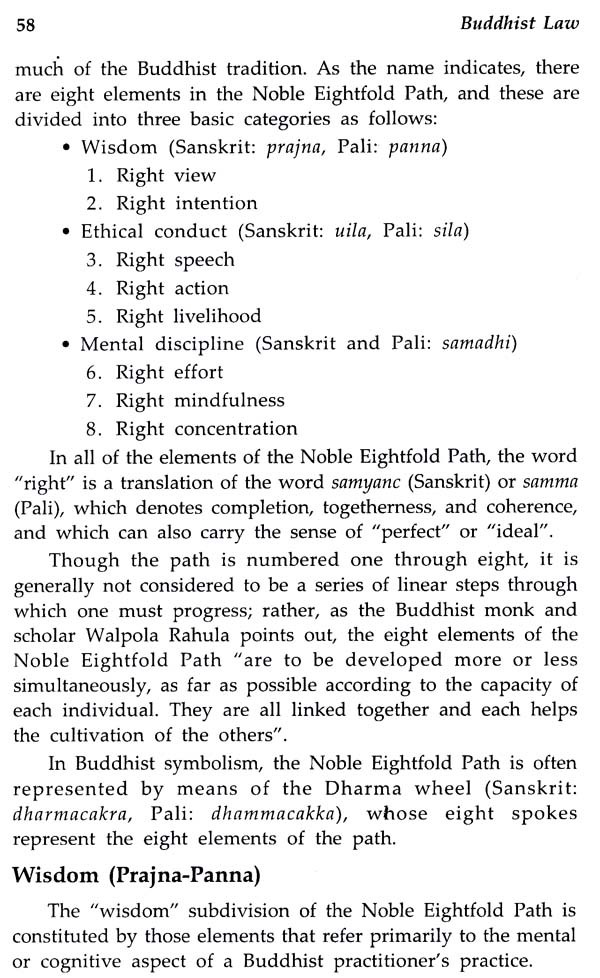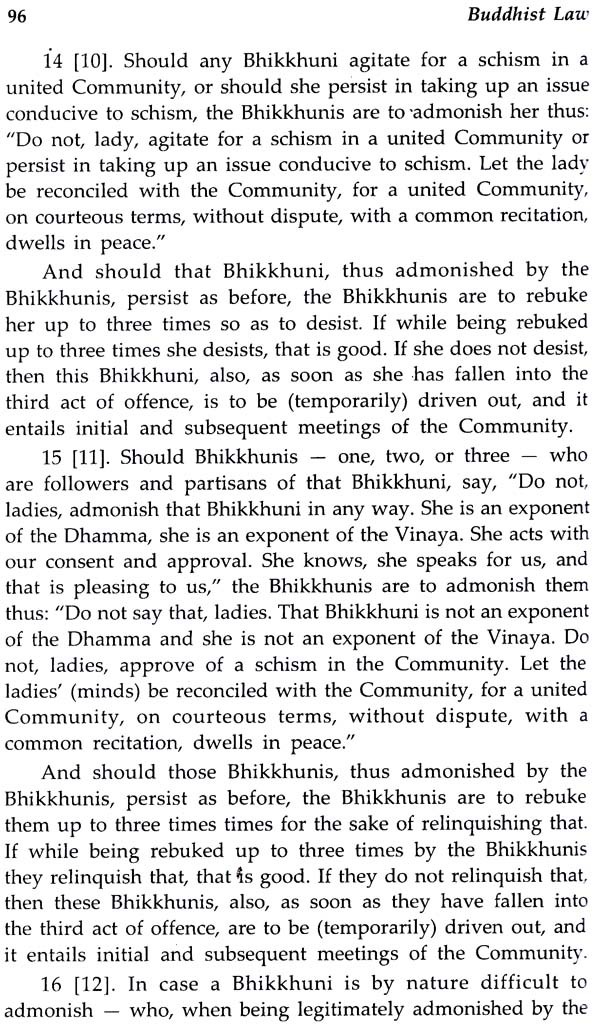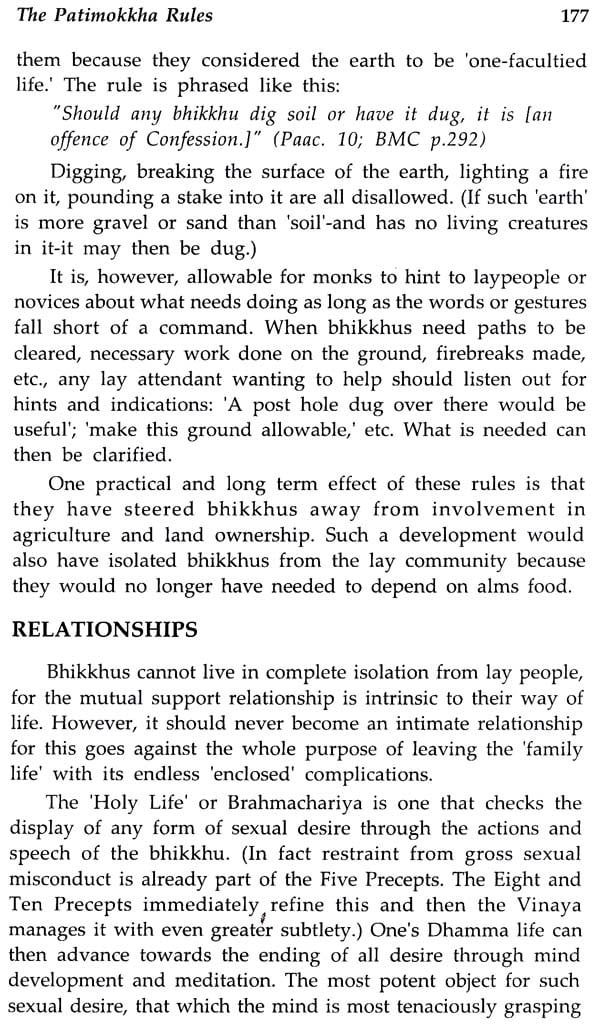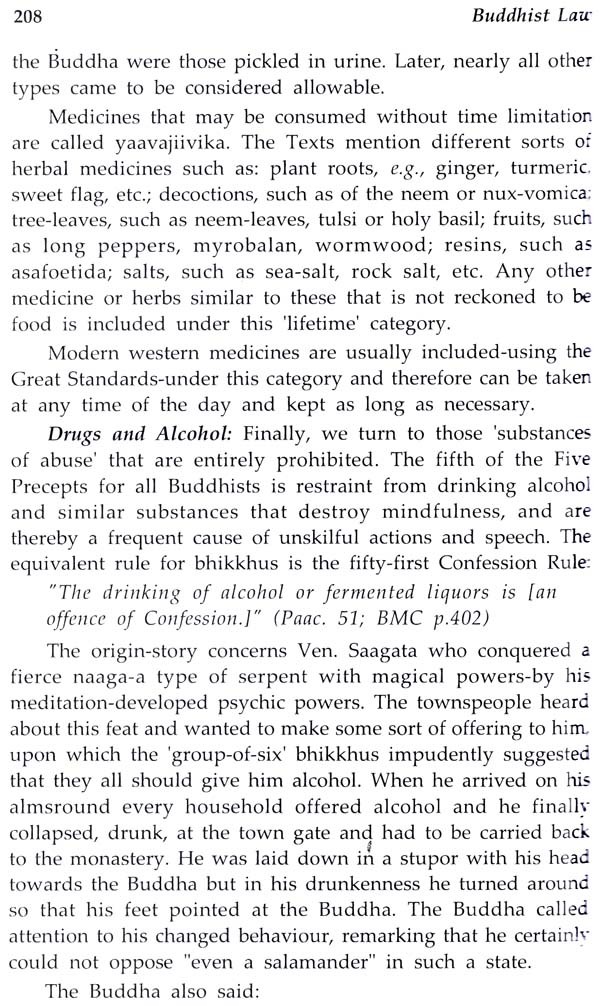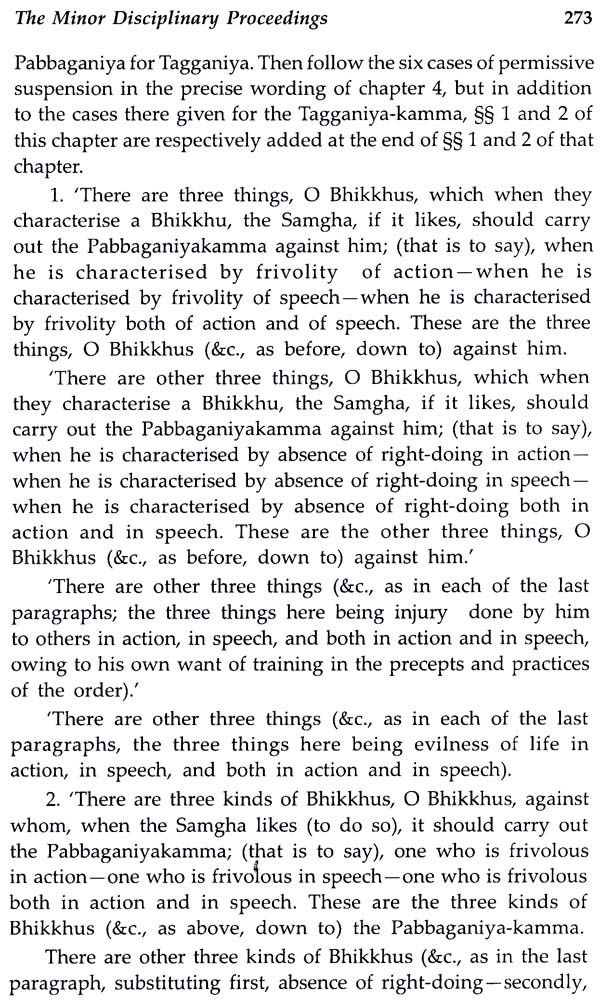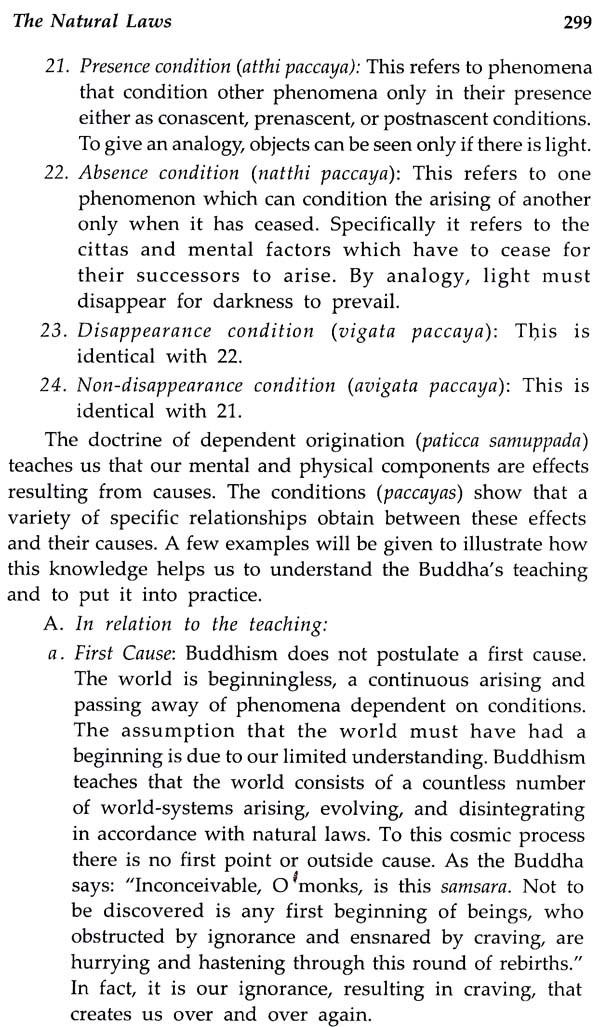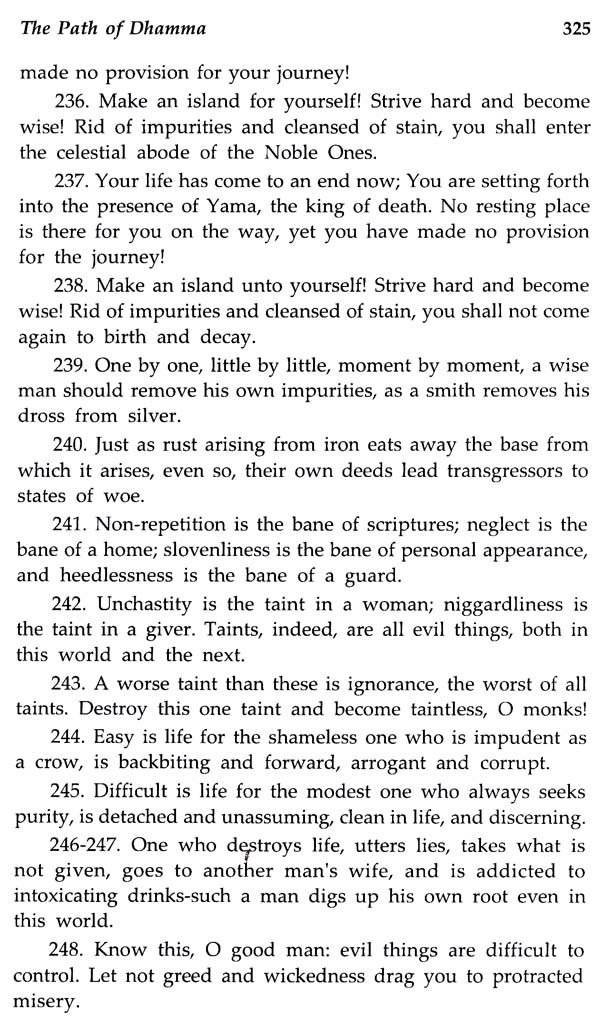
Buddhist Law
Book Specification
| Item Code: | UAR240 |
| Author: | Indra Narayan Singh |
| Publisher: | Prashant Publishing House, Delhi |
| Language: | English |
| Edition: | 2017 |
| ISBN: | 9789380565804 |
| Pages: | 358 |
| Cover: | HARDCOVER |
| Other Details | 9.00 X 6.00 inch |
| Weight | 570 gm |
Book Description
Buddhism and Law draws on the expertise of the foremost scholars in Buddhist studies and in law to trace the legal aspects of the religion from the time of the Buddha to the present. Buddhism teaches that the law of cause and effect underlies the workings of all phenomena.
Positive thoughts, words and actions create positive effects in the lives of individuals, leading to happiness. Negative thoughts, words and actions on the other hand-those that in some way undermine the dignity of life-lead to unhappiness. This is the general principle of karma. Similarly, in the Law of Karma, if we do a wholesome action, eventually we will get a wholesome fruit, and if we do an unwholesome action eventually we will get an unwholesome, painful result. This is what we mean when we say that causes bring about effects that are similar to the causes. This book will be an essential resource for all students and teachers in Buddhist studies, law and religion, and comparative law.
Dr. Indra Narayan Singh, a Senior Lecturer in the Department of Buddhist Studies Delhi University since 1996, obtained his Doctorate on A Study of Universal Flux in Theravada Buddhism. Dr. Singh has Published a number of articles and is a regular contributor to various journals and magazines of national and international repute. He has also edited the journals of Buddhist Studies.
Buddhism is a religion to about 300 million people around the world. The word comes from 'budhi', 'to awaken'. It has its origins about 2,500 years ago when Siddhartha Gotama, known as the Buddha, was himself awakened (enlightened) at the age of 35.
The first truth is that life is suffering i.e., life includes pain, getting old, disease, and ultimately death. We also endure psychological suffering like loneliness frustration, fear, embarrassment, disappointment and anger. This is an irrefutable fact that cannot be denied. It is realistic rather than pessimistic because pessimism is expecting things to be bad. Instead, Buddhism explains how suffering can be avoided and how we can be truly happy
Karma is the law that every cause has an effect, i.e., our actions have results. This simple law explains a number of things: inequality in the world, why some are born handicapped and some gifted, why some live only a short life. Karma underlines the importance of all individuals being responsible for their past and present actions. How can we test the karmic effect of our actions? The answer is summed up by looking at (1) the intention behind the action, (2) effects of the action on oneself, and (3) the effects on others.
Karma is the law of moral causation. The theory of Karma is a fundamental doctrine in Buddhism. This belief was prevalent in India before the advent of the Buddha. Nevertheless, it was the Buddha who explained and formulated this doctrine in the complete form in which we have it today.
**Contents and Sample Pages**
